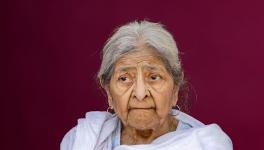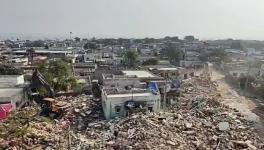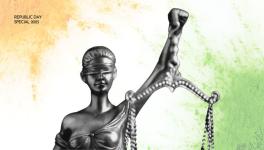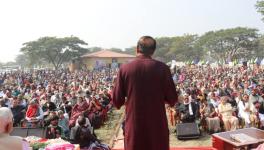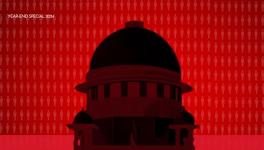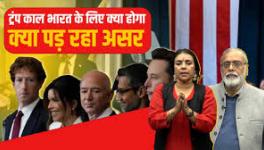SC to Hear Challenges to Places of Worship Act on Feb 17
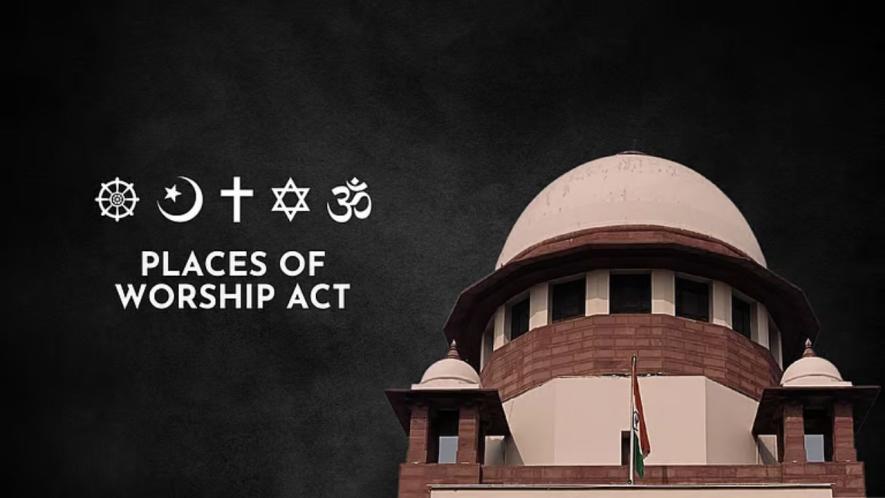
The Supreme Court is set to hear the batch of petitions challenging the constitutional validity of the Places of Worship (Special Provisions) Act, 1991, on February 17, 2025, together with petitions seeking its implementation and enforcement. This was announced by the Supreme Court on December 07, 2024 before a Special Bench of three Judges led by Chief Justice Sanjiv Khanna and Justices Sanjay Kumar and K.V. Viswanathan in the wake of civil courts across the country being seized with petitions/applications seeking surveys of mosques, including the Shahi Jama Masjid, Sambhal, the Moinuddin Chishti Dargah in Ajmer and the Atala Mosque in Jaunpur.
Supreme stays of all suits
On the previous date of the hearing on December 12, 2024, the Special Bench had stayed the registration of new suits disputing the existing character of any religious structure, although such suits may be filed. The Bench had also directed the Courts to refrain from undertaking any proceedings in such cases till further orders.
For the pending suits, the Bench directed that no Court will pass any effective interim or final orders, including orders directing surveys, etc., till the next date of the hearing or till further orders.
The order was passed in a courtroom full of chaos with lawyers jostling at the podium to put forth their arguments when Chief Justice Khanna fulminated, “We cannot have it like this. How do we even pass an order? If you don’t let us do it from the bench, we will do it from the chamber.”
Given the multiplicity and complexity of the directions sought, the Bench appointed nodal counsels for each side. Mr Vishnu Shankar Jain, Advocate-on-record, was appointed the Nodal Counsel on behalf of the writ petitioners challenging the validity of the 1991 Act and Mr Ejaz Maqbool, Advocate-on-record, was appointed the Nodal Counsel for the petitioners/interveners seeking enforcement of the Act or opposing the writ petitions challenging its validity. Mr Kanu Agarwal was appointed the Nodal Counsel for the Union Government.
For the pending suits, the Bench directed that no Court will pass any effective interim or final orders, including orders directing surveys, etc., till the next date of the hearing or till further orders.
The order applies to the Gyanvapi dispute in Varanasi, the Shahi Eidgah – Shri Krishna Janmabhoomi temple dispute in Mathura, the dispute over the Shahi Jama Masjid in Sambhal, the Bhojshala – Kamal Maula complex dispute in Dhar, the dargah of Sufi saint Moinuddin Chishti in Ajmer, the Atala Mosque in Jaunpur and to all such suits that are pending in more than ten other places.
Key provisions of the Act
The key provisions of the Act include the prohibition on the conversion of any place of worship (Section 3), maintaining the religious identity of such places as of the cutoff date, terminating all ongoing legal proceedings related to the character of religious structures and the prohibition on the initiation of any new suit, appeal, or other proceeding of that nature (Section 4).
The Act, however, exempts the Ayodhya dispute, the ancient monuments covered by the Ancient Monuments and Archaeological Sites and Remains Act, 1958 and the legal proceedings that were already decided or disputes that were mutually resolved before the commencement of the Act.
Enacted to preserve the secular fabric of the nation, these provisions have sparked a nationwide debate and the Act itself remains a significant issue in Indian politics and society, reflecting the broader divide based on historical claims, religious sentiments, and the quest for communal harmony.
The Act was passed in September 1991, introduced by the Indian government, led by Prime Minister P.V. Narasimha Rao in the backdrop of reoccurring violent riots that had engulfed the country since 1989. These riots stemmed from the dispute over the religious character of the Babri Masjid. Through the Act, the government of India sought to combat the communal forces and uphold the values of secularism.
The challengers and their contentions
The main petition challenging the validity of the Act was filed in 2020 by Advocate Mr Ashwini Upadhyay, who also happens to be a member of the ruling Bharatiya Janata Party. Mr Upadhyay’s petition challenges Sections 2, 3 and 4 of the Act for being violative of the right to equality and non-discrimination enshrined under Articles 14 and 15 of the Constitution, as, according to the petition, the Act only favours the Muslim community and discriminates against Hindus, Jains, Buddhists and Sikhs.
The government of India sought to combat the communal forces and uphold the values of secularism.
The petitions also contend that Section 4 of the Act bars judicial review, which is part of the basic structure of the Constitution and that the Act is also violative of Articles 25, 26 and 29 of the Constitution as it limits the right to exercise the freedom of religion by freezing the religious character of certain places of worship to August 15, 1947, thus disregarding “historical injustices” and precluding redressal for encroachments predating the cutoff date. It is also contended it infringes Article 21 as the law violates the “right to justice, right to judicial remedy and right to dignity”.
Other Petitioners supporting the contentions raised by Mr Upadhyay include another leader from the BJP and former Union Minister, Mr Subramanian Swamy and Hindu right-wing organisations like the Akhil Bharatiya Sant Samiti.
They also argue that the temples that were destroyed at the turn of the 11th century, by Muslim and Christian invaders remain as temples since deities are ‘eternal’, and do not lose ownership over their lands just because their idols were destroyed. Furthermore, the petitioners, argue Islamic laws require a waqf to acquire a mosque and the destruction of temples cannot create a waqf. Therefore, they are not valid mosques in Islamic Law.
Kumari Krishna Priya Maharaj, a member of the erstwhile royal family of Kashi, has filed an intervention in the matter, arguing that the Act was passed undemocratically and without consideration for the fundamental rights of the “Indigenous communities” that want to reclaim their religious and cultural sites that were occupied by the colonisers. She also argues that exempting the Ram Janmabhoomi-Babri Masjid dispute from the Act was discriminatory.
A PIL filed by a former member of the Lok Sabha, presently a member of the Legislative Assembly of Madhya Pradesh from the BJP, Mr Chintamani Malviya, is also tagged with these batch of petitions. Mr Malviya argues that the Central Government did not have the power to pass the Act as it was passed under the guise of public order, which is a matter of State List as it falls under Entry-1, List-II. Furthermore, pilgrimage other than to sites outside India also falls under the State List as it comes under Entry-7 of List-II. He argues that the Act violates Article 13(2) of the Constitution by preventing Hindus, Jains, Buddhists and Sikhs from reclaiming their religious and pilgrimage sites, thus revoking the rights granted by Part III of the Constitution.
The contentions of those support the Act
On the other side, the Petitioners seeking to implement and enforce the Act or supporting its constitutional validity emphasise the importance of maintaining the religious character of places of worship as they existed on August 15, 1947. They argue that the Act is essential for preserving secularism and maintaining communal harmony in India and that any alteration to the Act could jeopardise the secular fabric of the country.
Kumari Krishna Priya Maharaj, a member of the erstwhile royal family of Kashi, has filed an intervention in the matter, arguing that the Act was passed undemocratically and without consideration for the fundamental rights of the “Indigenous communities” that want to reclaim their religious and cultural sites that were occupied by the colonisers.
An intervention filed in support of the Act by Mr Thol. Thirumavalavan, a member of the Lok Sabha from Chidambaram constituency and president of the Viduthalai Chiruthaigal Katchi (VCK), takes on the “invader” argument. It not only questions the accuracy and impartiality of the sources that claim the destruction of certain religious structures by the invaders but also states that the description of “invader” has itself changed throughout history through various periods of civilisational unrest and transformation. The Petition underscores that even if it is to be assumed that certain mosques were constructed after demolishing Hindu temples by invaders, then such claims would have no end, as many Hindu temples were erected on the ruins of Buddhist stupas, thus, the Buddhists can also claim a right to restore them.
Mr Thirumavalavan argues that Act is religiously neutral as it uses neutral terms such as ‘place of worship’ without differentiating between religious denominations and forecloses all claims of changing the religious characters of any place of worship regardless of which religious group is claiming the right.
Other Petitioners supporting the validity of the Act and seeking its enforcement include prominent Muslim organisations, such as the Jamiat Ulama-i-Hind and the All-India Muslim Personal Law Board (AIMPLB). It also includes national and regional political parties such as the Indian Union Muslim League, the Communist Party of India (Marxist) (CPI-M), the Nationalist Congress Party (Sharad Pawar) (NCP-SP) represented by MLA Mr Jitendra Awhad, the Rashtriya Janata Dal (RJD) represented by MP Mr Manoj Kumar Jha, the Dravida Munnetra Kazhagam (DMK), the Indian National Congress and a petition on behalf of MP and president of the All India Majlis-e-Ittehadul Muslimeen (AIMIM), Mr Asaduddin Owaisi.
Union Government’s ambiguous stand
The Union Government’s stand on the subject remains ambiguous as the Solicitor General, Mr Tushar Mehta, had yet again asked for another extension on the last date of hearing to file the counter-affidavit on behalf of the Union. However, the Union of India has so far maintained that Parliament was authorised to promulgate such a law under the residuary powers provided under Entry 97 of the Union List.
The Five Judge Bench of the Supreme Court, which laid the Ram Janmabhoomi-Babri Masjid dispute to rest, had upheld the validity of the Act in its landmark 2019 verdict. The Court had then held that the Places of Worship Act is intrinsically woven into the obligations of a secular state and reflects the commitment that the nation owes to religious equality. The Court had called the Act a reminder to the State of its solemn obligation to preserve and protect the equality of all faiths, which is an essential and fundamental feature of the Constitution, and the Act confirms this non-negotiable duty of the State to uphold it.
“There is a purpose underlying the enactment of the Places of Worship Act. The law speaks to our history and to the future of the nation” the Court had observed. This statement perhaps best justifies freezing the cutoff date to the day India became independent.
However, in May 2022, the Supreme Court noted that inquiries into the religious character of places of worship can be allowed, provided they do not lead to changes in such religious character. This interpretation has since added another layer of complexity to the legal battles that continue to rage.
However, the Union of India has so far maintained that Parliament was authorised to promulgate such a law under the residuary powers provided under Entry 97 of the Union List.
It is to be seen how the Court will deal with the contentions.
Sadeeq Sherwani is an advocate practising in the Supreme Court. He has a background in Criminal, Constitutional and Human Rights Law.
TheLeaflet will be bringing live coverage of the case
The then President of India, Ramaswamy Venkatraman, had on July 11, 1991, while addressing a joint session of the parliament, declared that the places of worship must be treated with respect and the communal elements cannot be allowed to defile the sanctity of such places by using them as instruments to generate controversy and discord. He had announced that the Government of India would make every effort to find a negotiable settlement to the Ram Janmabhoomi – Babri Masjid issue and for all the other places of worship, a Bill would be introduced to maintain the status quo as on August 15, 1947, to foreclose any new controversy.
Get the latest reports & analysis with people's perspective on Protests, movements & deep analytical videos, discussions of the current affairs in your Telegram app. Subscribe to NewsClick's Telegram channel & get Real-Time updates on stories, as they get published on our website.










